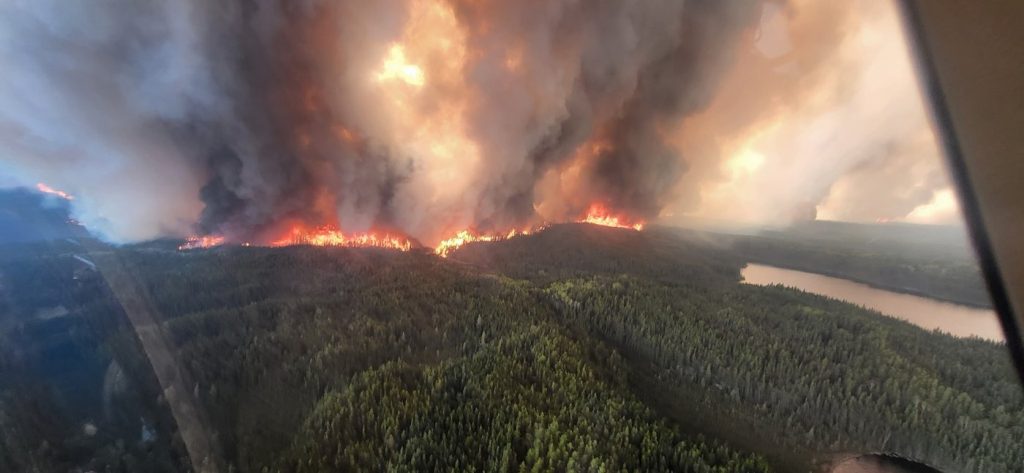Environment Canada has issued a special air quality statement for Toronto, the Greater Toronto Area (GTA), and most of Ontario due to the expected presence of wildfire smoke in the region overnight. This announcement brings attention to a significant environmental concern that could impact the health and safety of residents.
The rising smoke is causing or is anticipated to result in poor air quality and diminished visibility that may persist until Friday morning. In light of these conditions, the weather agency strongly advises individuals to limit their time spent outdoors, especially as smoke levels are projected to increase. This precaution is particularly important for vulnerable populations, including seniors aged 65 and older, pregnant women, and individuals with pre-existing health conditions.
With the health risks associated with air pollution, the weather service recommends that those most affected reschedule any physically demanding outdoor activities. These guidelines aim to mitigate exposure to elevated smoke levels, which can exacerbate existing health issues and lead to new respiratory distress.
Common symptoms associated with heightened smoke levels include irritation of the eyes, nose, and throat, as well as headaches and a mild cough. These symptoms are mild but can affect daily activities and overall well-being, particularly among those with respiratory sensitivities.
The wildfires currently raging across Alberta, Saskatchewan, and Manitoba have resulted in mass evacuations, compelling thousands of Canadians to leave their homes. The smoke from these wildfires has been so pervasive that it has even reached locations as far as Europe, showcasing the widespread impact of these environmental events.
CityNews meteorologist, Jessie Uppal, highlighted the potential for Toronto to face air quality conditions that could be worse than experienced during the previous summer. Experts are forecasting a hotter-than-average season for many parts of the country, heightening concerns about wildfire risks. Uppal noted, “Those hot, dry conditions spell trouble when it comes down to the wildfire threat,” indicating the direct correlation between weather patterns and wildfire activity.
As a point of reference, the current air quality index (AQI) in Toronto is recorded at 4, which is categorized as a moderate risk. This level signifies a potential for health effects, particularly among sensitive groups, and serves as a reminder for all residents to stay informed about changing air quality conditions.
In conclusion, the wildfire smoke situation serves as a critical reminder of the interconnectedness between climate conditions and public health. It underscores the importance of being vigilant and taking necessary precautions during times of environmental distress, particularly as Canada grapples with the challenges posed by climate change and its impact on air quality.












